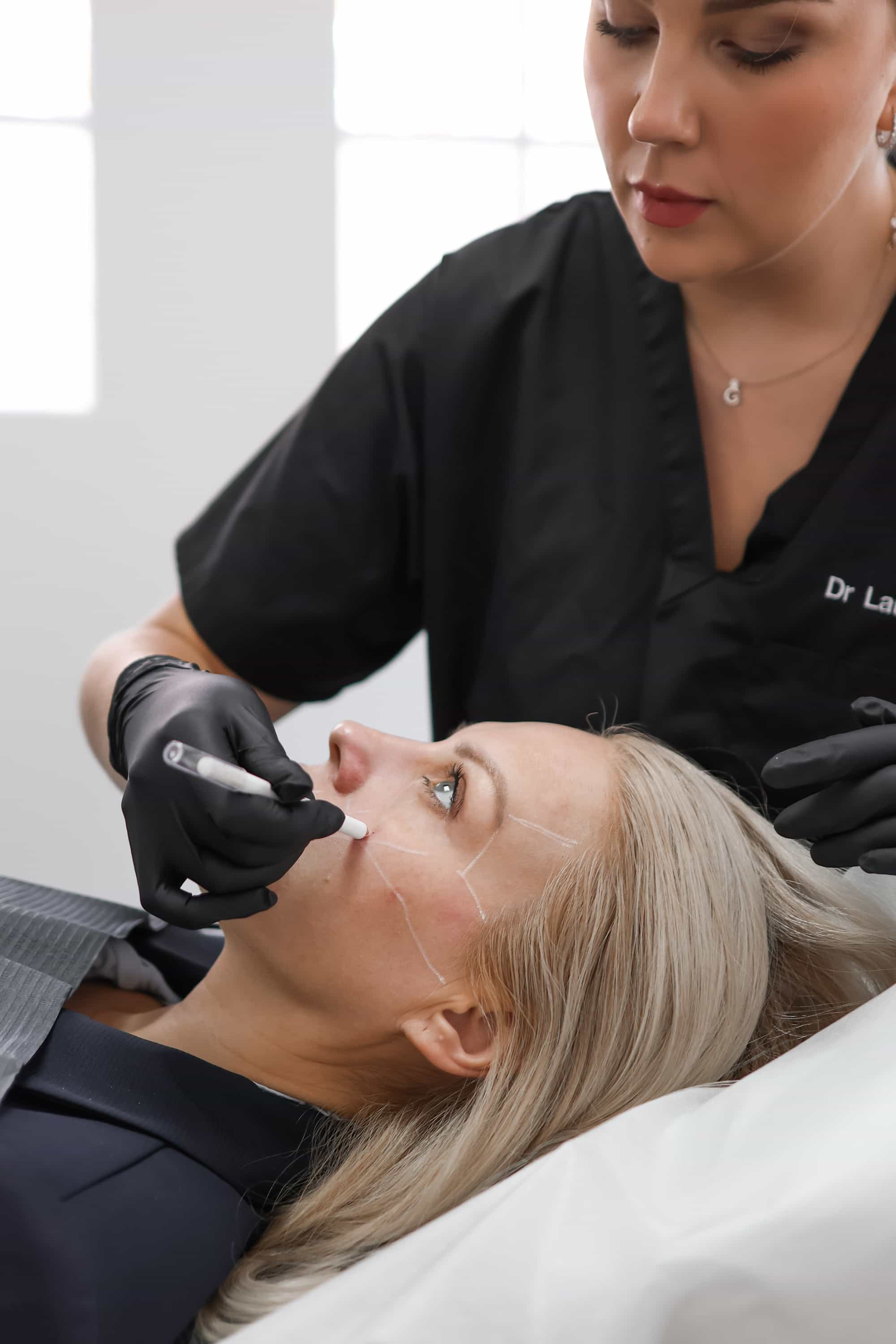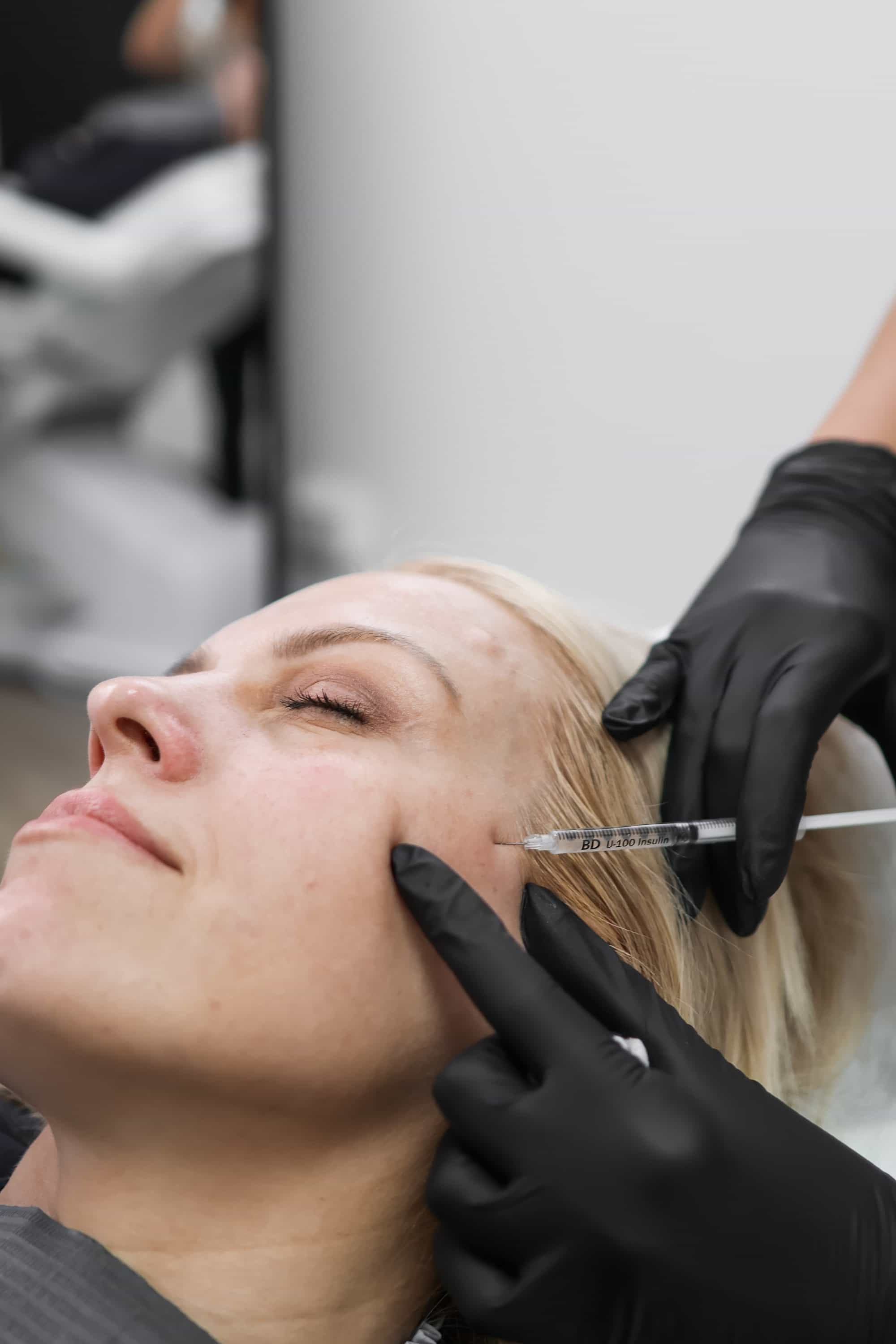Individual Skin Sensitivities
Sculptra, a popular injectable treatment that stimulates collagen production to address volume loss and wrinkles, may not be suitable for everyone. Individual skin sensitivities play a crucial role in determining whether Sculptra is a safe and effective option.
Here are some factors influencing individual skin sensitivities to Sculptra:
- Allergies:
- Pre-existing Skin Conditions
- Medications
- Sun Sensitivity
It’s essential to have a thorough consultation with a qualified medical professional experienced in Sculptra injections. They will assess your individual skin type, medical history, and any potential sensitivities to determine the safest and most effective course of treatment.
Potential Allergic Reactions
Potential allergic reactions are a concern with any injectable procedure, including Sculptra. While Sculptra is generally considered safe for most individuals, some people may experience allergic reactions ranging from mild to severe.
Allergic reactions to Sculptra can manifest in various ways, such as redness, swelling, itching, or rash at the injection site. In rare cases, more serious allergic reactions like anaphylaxis may occur. It’s crucial to be aware of these potential risks and to inform your medical provider about any known allergies before undergoing the procedure.
Medical History & Existing Conditions
When considering Sculptra injections, it’s vital to provide a comprehensive medical history to your practitioner. This includes disclosing any pre-existing skin conditions, as they can influence how your skin responds to the treatment.

Existing skin conditions like eczema, psoriasis, or rosacea might increase the risk of complications or make Sculptra less effective. Openly discussing these conditions with your doctor allows them to assess potential risks and determine if Sculptra is a suitable option for you. They may recommend alternative treatments or modifications to the procedure to minimize any potential adverse reactions.
Fair Skin
Sculptra, a popular injectable treatment that stimulates collagen production, might not be suitable for everyone due to individual skin sensitivities.
It’s crucial to have a thorough consultation with a qualified medical professional experienced in Sculptra injections to determine if it’s a safe and effective option.
They will assess your individual skin type, medical history, and any potential sensitivities to recommend the safest course of treatment.
Potential allergic reactions are a concern with any injectable procedure, including Sculptra.

While Sculptra is generally considered safe, some people may experience reactions ranging from mild to severe, such as redness, swelling, itching, or rash at the injection site.
In rare cases, more serious allergic reactions like anaphylaxis may occur. It’s essential to inform your medical provider about any known allergies before undergoing the procedure.
When considering Sculptra injections, provide a comprehensive medical history to your practitioner. This includes disclosing any pre-existing skin conditions as they can influence how your skin responds to the treatment.
Existing skin conditions like eczema, psoriasis, or rosacea might increase the risk of complications or make Sculptra less effective. Openly discussing these conditions with your doctor allows them to assess potential risks and determine if Sculptra is a suitable option.
Medium Skin
Sculptra injections are gaining popularity for addressing facial volume loss and wrinkles. However, it’s crucial to understand that not everyone is a suitable candidate for this treatment due to individual skin sensitivities.
For individuals with %h2%, Medium Skin, the effectiveness and safety of Sculptra depend on various factors.

Allergies play a significant role in determining whether Sculptra is safe. Some people might experience allergic reactions ranging from mild (redness or itching) to severe (anaphylaxis). It’s vital to disclose any known allergies to your medical provider before undergoing the procedure.
Pre-existing skin conditions can also influence how your skin responds to Sculptra. Conditions like eczema, psoriasis, or rosacea might increase the risk of complications or reduce the treatment’s effectiveness.
It is essential to have a thorough consultation with a qualified medical professional experienced in Sculptra injections. They will assess your individual skin type, medical history, and any potential sensitivities to determine if Sculptra is a safe and appropriate treatment option for you.
Dark Skin
Sculptra injections are gaining popularity for addressing facial volume loss and wrinkles. However, it’s crucial to understand that not everyone is a suitable candidate for this treatment due to individual skin sensitivities.
For individuals with %h2%, Dark Skin, the effectiveness and safety of Sculptra depend on various factors.
Allergies play a significant role in determining whether Sculptra is safe. Some people might experience allergic reactions ranging from mild (redness or itching) to severe (anaphylaxis). It’s vital to disclose any known allergies to your medical provider before undergoing the procedure.
Pre-existing skin conditions can also influence how your skin responds to Sculptra. Conditions like eczema, psoriasis, or rosacea might increase the risk of complications or reduce the treatment’s effectiveness.
It is essential to have a thorough consultation with a qualified medical professional experienced in Sculptra injections. They will assess your individual skin type, medical history, and any potential sensitivities to determine if Sculptra is a safe and appropriate treatment option for you.
Uneven Results
Sculptra, a popular injectable treatment that stimulates collagen production, might not be suitable for everyone due to individual skin sensitivities. It’s crucial to have a thorough consultation with a qualified medical professional experienced in Sculptra injections to determine if it’s a safe and effective option. They will assess your individual skin type, medical history, and any potential sensitivities to recommend the safest course of treatment.
Potential allergic reactions are a concern with any injectable procedure, including Sculptra. While Sculptra is generally considered safe, some people may experience reactions ranging from mild to severe, such as redness, swelling, itching, or rash at the injection site. In rare cases, more serious allergic reactions like anaphylaxis may occur. It’s essential to inform your medical provider about any known allergies before undergoing the procedure.
When considering Sculptra injections, provide a comprehensive medical history to your practitioner. This includes disclosing any pre-existing skin conditions as they can influence how your skin responds to the treatment. Existing skin conditions like eczema, psoriasis, or rosacea might increase the risk of complications or make Sculptra less effective. Openly discussing these conditions with your doctor allows them to assess potential risks and determine if Sculptra is a suitable option.
Lumps and Bumps
Sculptra, a popular injectable treatment that stimulates collagen production, might not be suitable for everyone due to individual skin sensitivities. It’s crucial to have a thorough consultation with a qualified medical professional experienced in Sculptra injections to determine if it’s a safe and effective option. They will assess your individual skin type, medical history, and any potential sensitivities to recommend the safest course of treatment.
Potential allergic reactions are a concern with any injectable procedure, including Sculptra. While Sculptra is generally considered safe, some people may experience reactions ranging from mild to severe, such as redness, swelling, itching, or rash at the injection site. In rare cases, more serious allergic reactions like anaphylaxis may occur. It’s essential to inform your medical provider about any known allergies before undergoing the procedure.
When considering Sculptra injections, provide a comprehensive medical history to your practitioner. This includes disclosing any pre-existing skin conditions as they can influence how your skin responds to the treatment. Existing skin conditions like eczema, psoriasis, or rosacea might increase the risk of complications or make Sculptra less effective. Openly discussing these conditions with your doctor allows them to assess potential risks and determine if Sculptra is a suitable option.
Enquire about Sculptra and rejuvenate your skin with Dr. Laura Geige.
- Does Kratom Powder Expire? How To Check And Extend Shelf Life - June 28, 2025
- What Is The Lifespan Of Radiesse? - June 27, 2025
- Do Kratom Gummies Show Up On Drug Tests? - June 26, 2025
